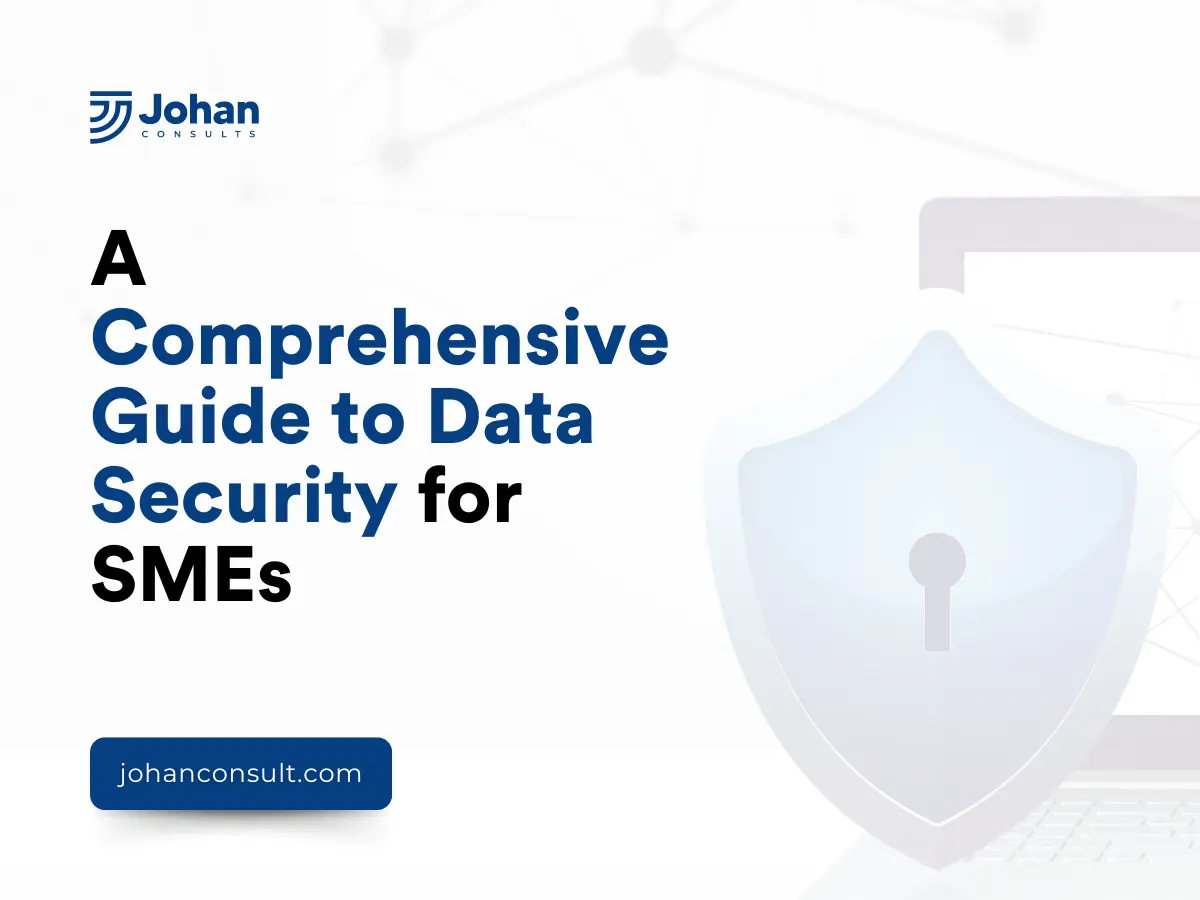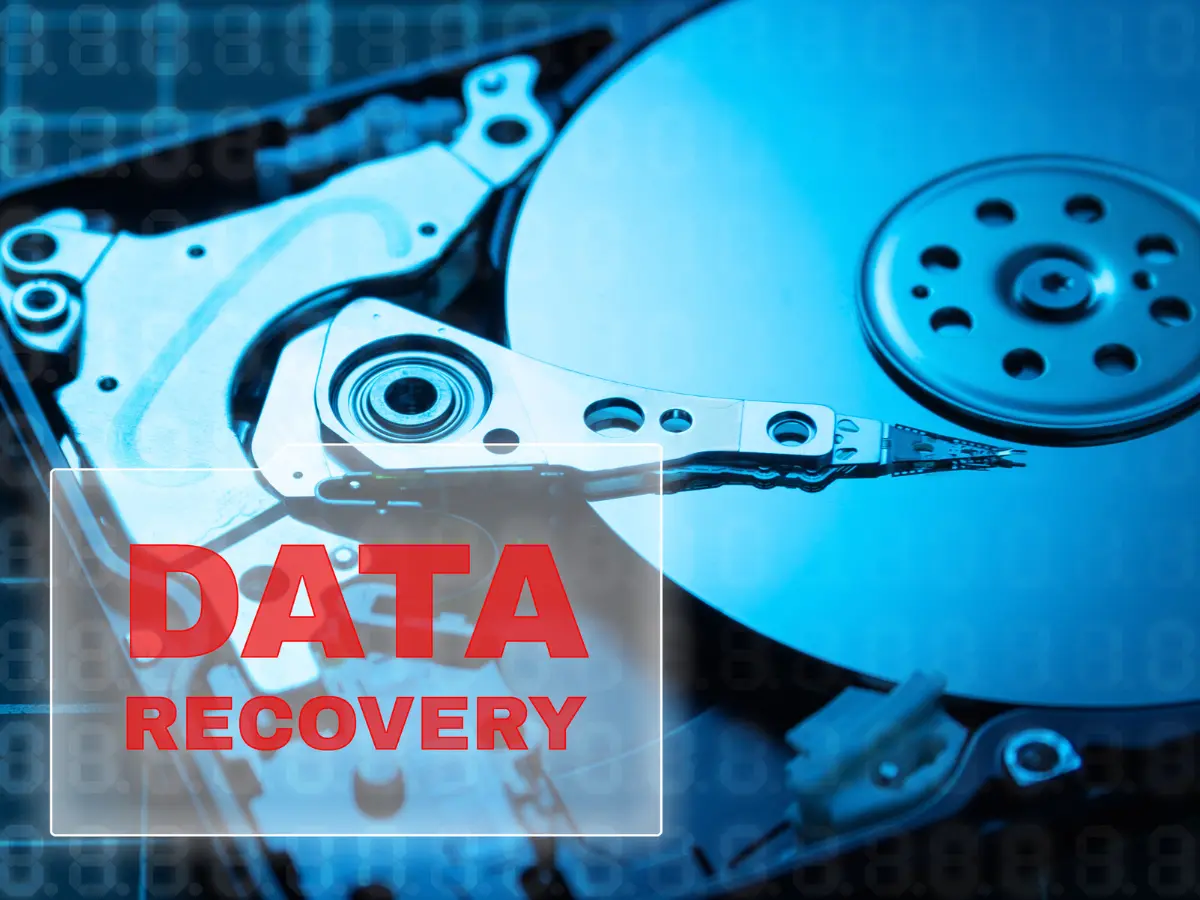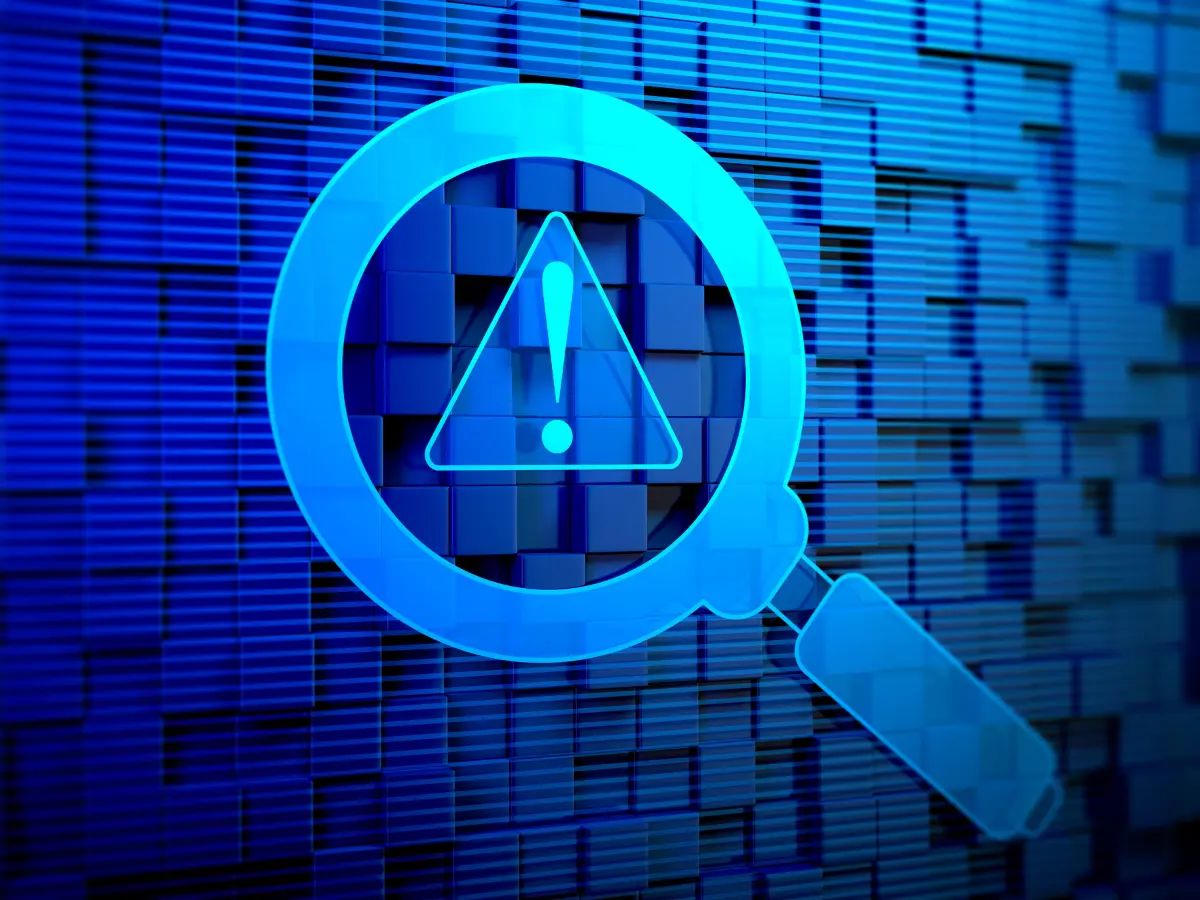As the new goldmine, from the moment data is collected, stored, and processed, it is susceptible to cyberattacks. While large businesses might be too large a target for cybercriminals, the same can’t be said for small and medium-scale businesses. This is why knowing about data security is important for all businesses.
In 2022, the Cyber Security Expert Association of Nigeria reported that cyberattacks on SMEs grew by 87%. The result of these statistics is evident: impersonations, identity thefts, financial thefts, and targeted attacks. This calls for more actions regarding data security amongst SMEs.
What is Data Security?
Data security is the process of safeguarding digital data from external threats (corruption, theft, and unauthorized access) to its integrity. It is important at every stage of data’s lifecycle—collection, processing, and storage.
Often used interchangeably with data protection, it is not the same. Data protection is the entire process of safeguarding data from accidental loss or compromise. Basically, data protection focuses on safeguarding data from inside threats—mishandling and accidental loss. While data security keeps the bad guys out—unauthorized access and cyber attacks.
Why is Data Security Important To SMEs?
There are a handful of reasons why data security is important to SMEs. Top on the list are the legal implications of a successful data breach. Organizations are held accountable for data collected and processed under data protection laws. Under each one of those laws, businesses have to fulfil certain obligations towards data security. In the event of a data breach, the organization faces the full wrath of the law. Data subjects may also sue the business.
There are also reputational consequences to consider. Data breaches cause so much damage to the reputation of the affected business. That’s something no business wants.
Under the NDPR and GDPR, businesses are mandated to announce every data breach occurrence within a set timeframe. A weak data security system will cause any business to make such announcements regularly. It’s the business equivalent of the “walk of shame.”.
And, of course, the financial costs of a data breach. Money and time will be spent to correct the effects of the attack. Since the entire data security system will be evaluated and updated.
Most small and medium businesses cannot afford the costs of a data breach. So, adequate data security should be implemented.
The 3 Pillars of Data Security
There are three major elements, or principles, of data security, also called the CIA Triad. They serve as a template or framework for an absolute data security system. Here’s what they mean:
Confidentiality: Data is accessed only by authorized users.
Integrity: All data stored must be accurate, reliable, and not changed unwarranted.
Availability: Data must be available and readily accessible when needed.

Data Security Technologies for SMEs
The right set of data security technologies is beneficial to Preventing data breaches in small businesses
Data Auditing
Data-auditing software solutions are just like spycams. They record everything from who accessed what information to control changes. Such software solutions are necessary for all small and medium-scale businesses to have.
In the event of a data breach, it is easier to figure out the problem(s) with data auditing.
Data Risk Assessment
A data-risk assessment always carries out a thorough job. With it, sensitive data is discovered, along with potential threats to it. A data risk assessment goes the extra mile in preventing data breaches in small businesses by recommending remediation pathways.
Data Real-Time Alerts
Discovering a database takes far too long for organizations. Oftentimes, these reaches are discovered by customers and other third parties
With real-time monitoring systems preventing data breaches in small businesses becomes easy, as SMEs get data breach alerts immediately. This helps to reduce data loss, destruction, and unauthorized access.
Data Minimization
The more data you have, the riskier it becomes. That is why data minimization is a data security technology. Always hold on to necessary data only.
Data Security Regulations and Compliance
Data security is such an important phenomenon that regulations for it have sprung up all over the world. What is the need for data security regulations?
It is necessary to provide a clear data protection or security template to organizations.
Also, to protect the rights of data subjects, such laws have to be laid down. That way, any organization defaulting can be held accountable.
Important Data Security Regulations
As a growing business willing to go the extra mile to secure data, it’s of utmost importance that you understand regulations. Here is a small compilation of data security regulations you need to know.
The most popular regulation is the GDPR (General Data Protection Regulation). It was enacted in the European Union to ensure proper data protection for its citizens. The main focus of the GDPR is personal identifiable information (PII).
It requires every organization handling EU data, in or outside the region, to practice premium transparency.
The GDPR is not to be trifled with. It imposes dire punishments on any organization found to be non-compliant. A fine of EUR 20 million or up to 4% of the annual global profit, whichever is higher, can be imposed on offending parties.
NDPR (Nigerian Data Protection Regulation)
This regulation is an adaptation of the GDPR. The major difference between the two is scope.
Established in 2019, the NDPR aims at protecting personal data that belongs to Nigerian citizens from loss, compromise, and unauthorized access.
Payment Card Industry Data Security Standards (PCI-DSS)
This regulation applies to any business that handles credit card data. Be it acceptance as a payment method, storage, transmission, or even third-party service involvement,.
Unlike the GDPR and NDPR, it is not imposed by a government body. PCI-DSS is enforced by an independent regulatory body called the Payment Card Industry Security Standards Council.
Data Compliance vs. Data Security Compliance
Oftentimes, data compliance is mistaken for data security compliance. The former concerns the entity rules and regulations applicable when handling data. While the latter, data security compliance, is a subset of data compliance,.
It is restricted to the security aspect of handling data. In a nutshell, data security compliance is a type of data compliance.
Data Security Practices For SMEs
Most large organizations have mastered the art of data security in accordance with the rules and regulations affecting them. It’s the small and medium-scale businesses that struggle with data security and compliance.

Below are some data security practices you can implement in compliance with data regulations.
- Know your regulations: start by identifying the regulations that apply to your industry and location.
- Data Inventory: highlight the details of the data you keep. What type of data is it, how is it collected, where it is stored, and who has access to it?
- Establish policies: Implement transparent security policies to ensure data is secured properly.
- Access control: implement procedures to keep unauthorized personnel away from data.
- Data Storage: ensure data is stored securely. You can make use of firewalls and encryption storage solutions.
- Regular Audits: carry out regular data audits to assess your data compliance measures and areas that need improvement.
- Data Breach Response Plan: come up with an incident-response plan to mitigate the effects of a breach.
The following are more data security practices SMEs can use anytime
Encryption: Encryption is a way to keep unauthorized persons from understanding data. It uses mathematical models to scramble data, so only people with the key can understand. As an SME, you can encrypt your email conversations, files, and databases to some extent.
Access Control: Of the SME data security best practices, access control covers both physical and digital aspects of data security. It simply makes use of login credentials known only to authorized users to prevent digital access. At the same time, physical barriers are installed to prevent unauthorized personnel from entering areas where data is stored.
This type of data security is probably the easiest one for SMEs.
Authentication: This involves the use of swipe cards, biometrics, passwords, etc. to verify users for access to data. Authentication works hand-in-hand with access control.
Backups and Recovery are a good type of security where another copy of data is stored somewhere safe and easily accessible. This is to prevent total loss of data. You can store data on a physical disk, a local network, or the cloud.
Data Erasure: you can’t lose what you don’t have. This perfectly explains data erasure as a data security type. Data erasure uses software to completely overwrite data on any storage device. With it, data cannot be recovered, an advantage over data wiping.
Conclusion
SMEs face growing cyber threats every day. Through data security measures and compliance with regulations, SMEs can protect sensitive information and maintain customer trust. Prioritizing data security safeguards both business operations and reputation.
You’re right – let me align the call to action more closely with the article’s informative, professional tone:
As cyber threats against SMEs continue to rise, implementing proper data security measures isn’t optional – it’s a must for business survival. At JohanConsults, we help small and medium enterprises conquer the landscape of data security and regulatory compliance
Our experts will guide you through establishing the right security practices that align with NDPR, GDPR, and PCI-DSS requirements. Visit johanconsults.com to learn how we can help!.










